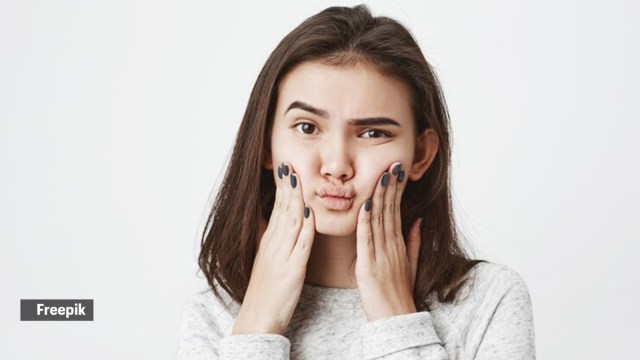📣 For more lifestyle news, click here to join our WhatsApp Channel and also follow us on Instagram
Biting your cheeks may lead to jowls: true or false?
Jowls are a symptom of ageing, and are predominantly found in older men and women.
 Loose sub-mucous tissue can make someone more prone to biting their cheeks (Source: Freepik)
Loose sub-mucous tissue can make someone more prone to biting their cheeks (Source: Freepik)Cheek biting is a common habit, often occurring when we’re lost in thought or distracted. This repetitive action raises the question: Could it contribute to sagging skin around the mouth as we age?
indianexpress.com consulted Dr Parthasaradhi Reddy, founder chairman of FMS Dental Clinics, to uncover the truth.
“Jowls, the sagging of jaw muscles, are primarily a symptom of ageing, predominantly found in older people. Loosening of the sub-mucous tissue results in this. Over time, as the height of the teeth decreases, jaw muscles lose their firmness, leading to jowls. Excessive sun exposure can also contribute to this condition,” he said.
Dr Reddy clarified that while loose sub-mucous tissue can make someone more prone to biting their cheeks, it is not the cause of jowls. Instead, cheek biting is often a result of the existing condition. “Loss of vertical height in the mouth can cause muscles to lose their firmness,” he added. “Dermatological treatments such as Botox or radio laser surgeries can help restore skin elasticity.”
 Jowls, the sagging of jaw muscles, are primarily a symptom of ageing (Source: Freepik)
Jowls, the sagging of jaw muscles, are primarily a symptom of ageing (Source: Freepik)
What happens if you bite your cheek too often?
Dr Reddy cautioned that chronic irritation of the mucous membrane from frequent cheek biting can lead to fibrosis, where the tissue thickens, potentially causing non-healing ulcers and, in severe cases, oral cancer.
“The best way of dealing with this is by blowing your cheeks on a regular basis. If you’re sitting idly or reading something, puff up your cheeks or blow them out to increase muscle tenacity,” suggested Reddy.
“You can also opt for a mouth guard to help you counter this bad habit. And if you happen to go to a dentist, they may also advise you to get your last teeth removed to counter this issue,” he said.
*DISCLAIMER: This article is based on information from the public domain and/or the experts we spoke to. Always consult your health practitioner before starting any routine.*
📣 For more lifestyle news, click here to join our WhatsApp Channel and also follow us on Instagram






- 01
- 02
- 03
- 04
- 05





















